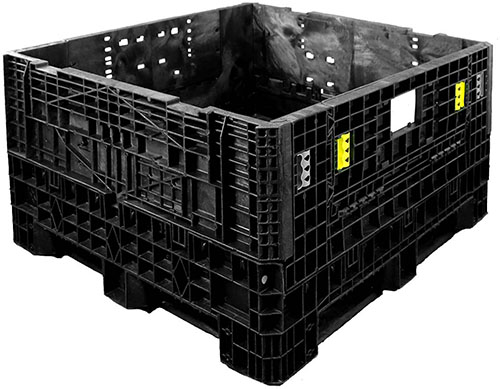In the ever-growing landscape of environmental consciousness, the shipping industry is facing a pressing challenge – reducing the mountain of waste generated by single-use transport packaging. Here, reusable containers emerge as a beacon of sustainability, offering a multi-pronged approach to tackling this issue. The core benefit of reusable containers lies in their longevity. Unlike their disposable counterparts, these robust crates, pallets, and bins can withstand countless journeys, significantly reducing the demand for virgin materials and the environmental impact associated with their production. This translates to a decrease in greenhouse gas emissions, resource depletion, and overall waste generation. Furthermore, reusable containers foster a closed-loop system. Imagine a network where producers send their goods in standardized, reusable containers that are collected, cleaned, and returned for the next shipment. This eliminates the need for disposal and the associated environmental burdens of landfills or incineration.

Additionally, the closed-loop system promotes efficiency throughout the supply chain. Standardized containers optimize storage space during transport, leading to fewer trucks on the road and a further reduction in emissions. The advantages extend beyond environmental benefits. Reusable containers offer significant economic gains for businesses. The initial investment might be higher compared to single-use options, but the long lifespan of these containers translates to substantial cost savings in the end. Reduced waste disposal fees and streamlined logistics contribute to a healthier bottom line. Additionally, reusable containers minimize product damage during transport. Their sturdiness offers superior protection compared to cardboard boxes, leading to fewer returns and replacements, thereby saving businesses time and money. However, implementing a reusable container system requires careful consideration. The success hinges on collaboration between all stakeholders in the supply chain.
Producers, distributors, and retailers need to establish a system for efficient collection, cleaning, and return of the containers. This might involve setting up designated drop-off points or implementing a deposit system to incentivize proper return. Another factor to consider is the type of goods being transported. While reusable bulk container are ideal for many products, some delicate items might require additional protective packaging within the reusable container. Here, the focus can shift towards biodegradable or compostable inner packaging materials to minimize overall waste. In conclusion, reusable containers offer a powerful solution for sustainable transport packaging. By reducing waste, lowering emissions, and promoting efficiency, they represent a significant step towards a greener future. As businesses and consumers become more environmentally conscious, the adoption of reusable containers is poised to become the norm, leaving a positive footprint on our planet.
